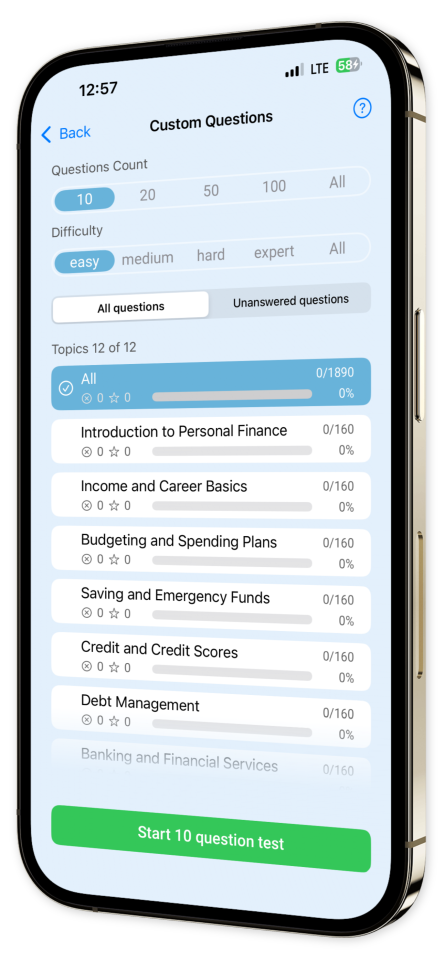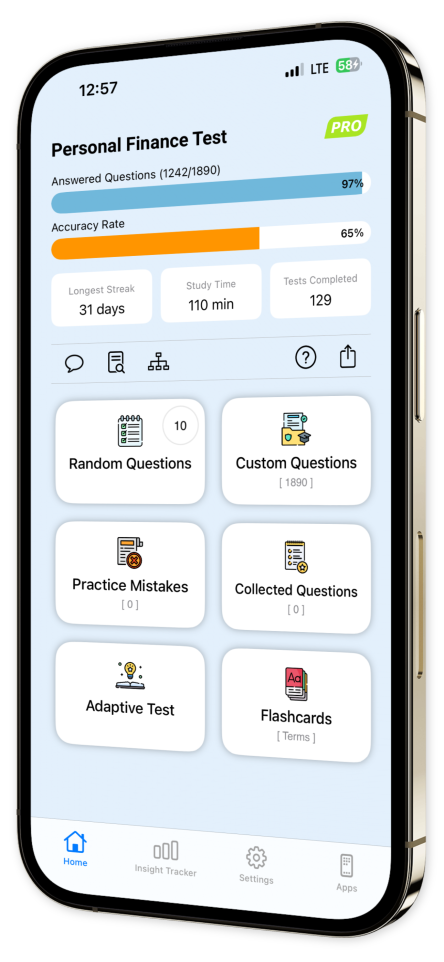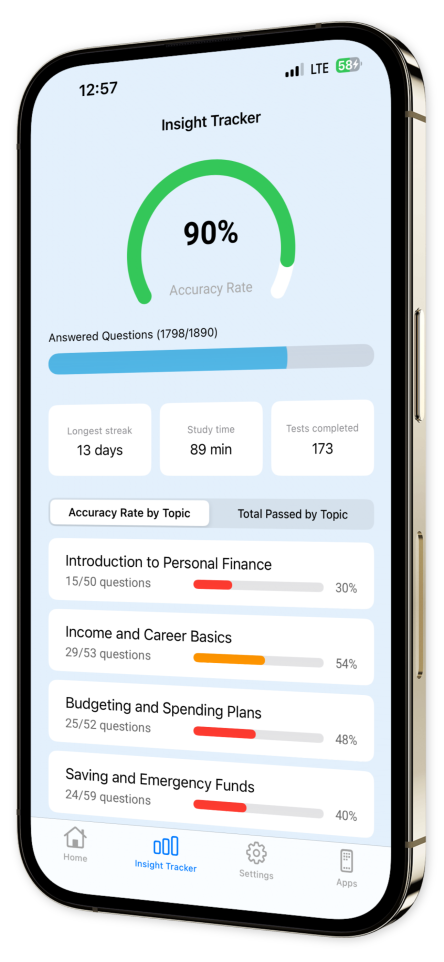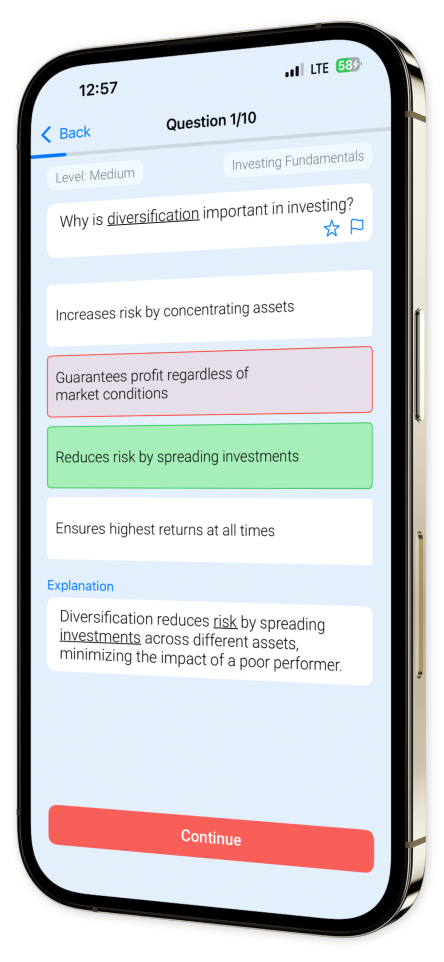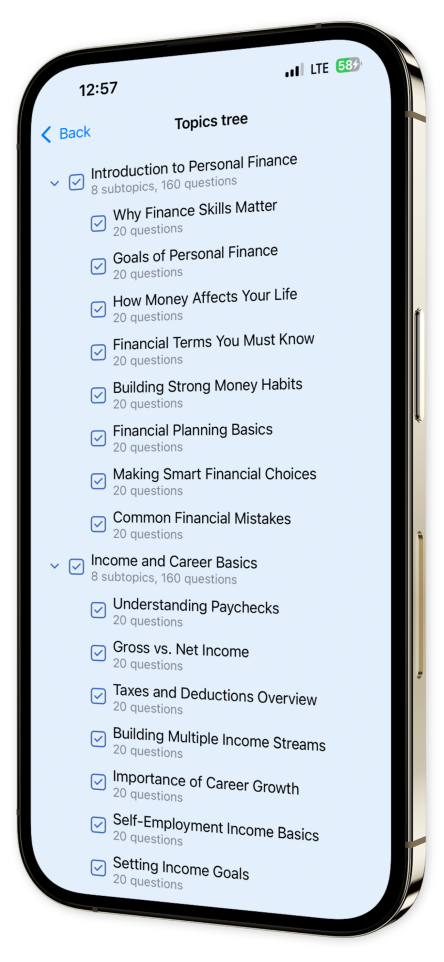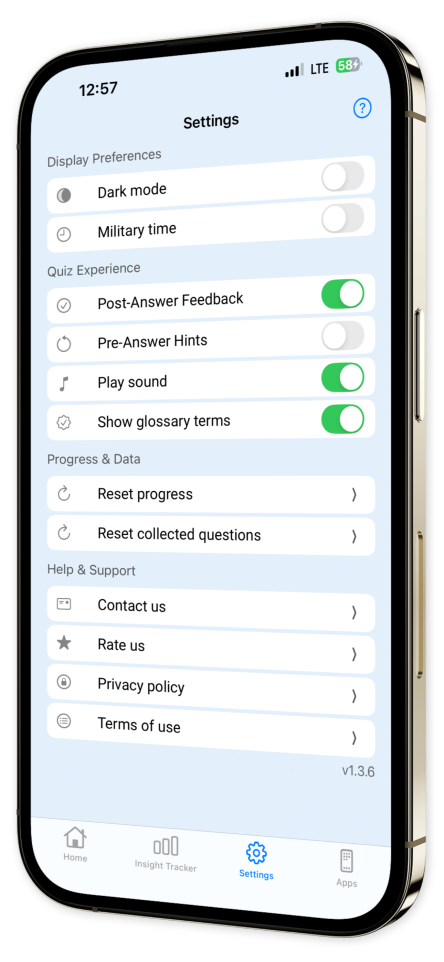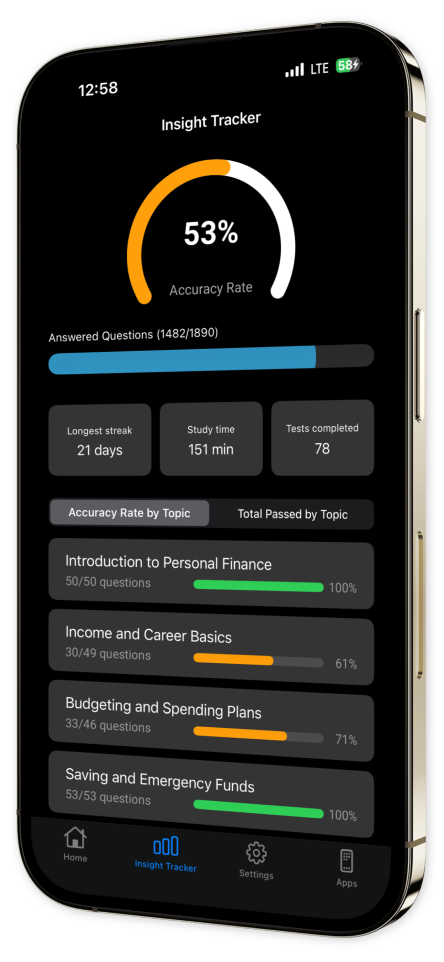Content Overview
Explore a variety of topics covered in the app.
Example questions
Let's look at some sample questions
Why are personal finance skills important when preparing for retirement?
They help increase discretionary spending in the short term.They allow avoiding financial planning altogether.They ensure an understanding of saving and investment strategies.They eliminate the need for budgeting.
Personal finance skills provide knowledge on saving, investing, and compounding interest, which are crucial for ensuring stable and adequate funds for retirement.
If you save $300 monthly at an annual interest rate of 4% compounded monthly, what will be the amount in the account after 20 years?
$110,357$120,000$150,000$104,000
Using the future value of annuity formula FV = P[(1 + r/n)^(n*t) - 1]/(r/n), where P = $300, r = 0.04, n = 12, t = 20. FV = $300[(1+0.04/12)^(12*20) - 1]/(0.04/12) = $110,357.
How can proper budgeting enhance financial decision-making?
By making all expenses tax-deductible.By predicting exact market trends.By ensuring surplus cash for investments and emergencies.By always doubling savings over expenses.
Proper budgeting allocates resources efficiently, enabling individuals to set aside sufficient funds for future investments and emergencies, thus enhancing overall financial stability and decision-making.
Which is a common personal finance goal?
Building an emergency fundSpending all monthly incomeIncreasing credit card debtEliminating all types of insurance
A common personal finance goal is to build an emergency fund to cover unexpected expenses.
What does an emergency fund help with?
Debt accumulationInvestment lossesCovering unforeseen expensesIncreasing budget deficits
An emergency fund helps cover unforeseen expenses, providing financial stability during unexpected situations.
What is a key characteristic of a realistic financial goal as defined in personal finance?
Adjusted only when global markets shift.Achievable with current financial resources.Optimistic and based on future speculations.Static, regardless of lifestyle or income changes.
A realistic financial goal takes into account the current financial resources available to an individual. This involves evaluating income, savings, and other assets to ensure the goal is attainable within present constraints, avoiding dependency on uncertain future conditions.
Which term describes the ongoing process of adjusting financial strategies to align with personal financial goals?
Static budgetingFinancial inertiaDynamic financial planningEconomic stagnation
Dynamic financial planning involves regularly revisiting and adjusting financial strategies to ensure they remain aligned with personal goals and changes in personal circumstances, economic conditions, and market opportunities.
Which of the following factors can money impact in your daily life?
HousingHappinessHealthAll of the above
Money can impact various aspects of life including housing through rent or mortgage, happiness by reducing stress caused by financial insecurity, and health by allowing access to healthcare. Therefore, 'All of the above' is the correct answer.
Which of these is a non-essential expense?
RentGroceriesDining outUtilities
Non-essential expenses are those not crucial to basic living needs. Dining out is not essential compared to necessities like rent, groceries, and utilities.
You allocate 50% to a risky asset with return 12% and 50% to a risk-free asset at 4%. What's the portfolio return?
8%9%10%11%
Portfolio return = (weight of risky asset * return of risky asset) + (weight of risk-free asset * return of risk-free asset). So, 0.5 * 12% + 0.5 * 4% = 6% + 2% = 8%.
